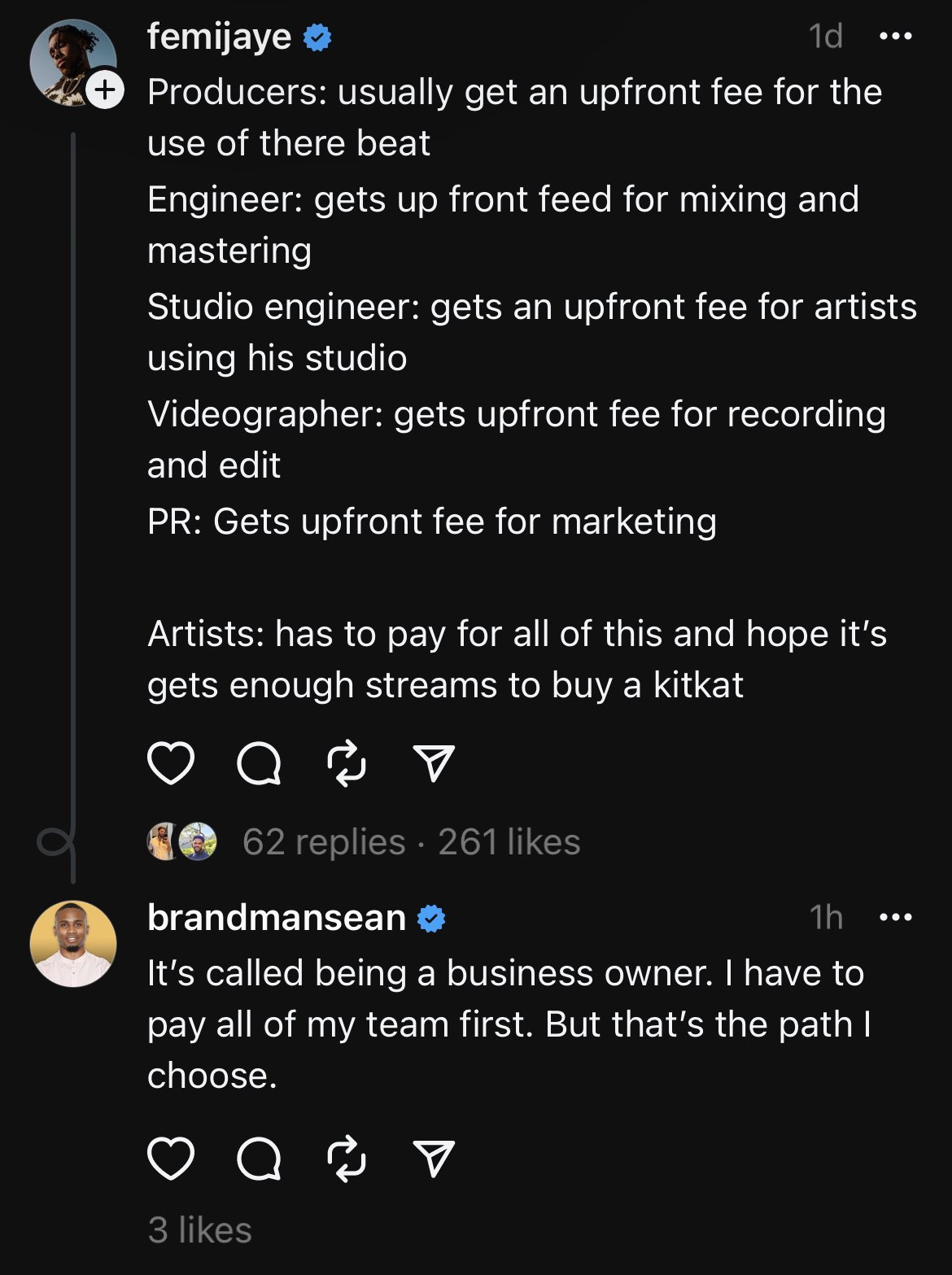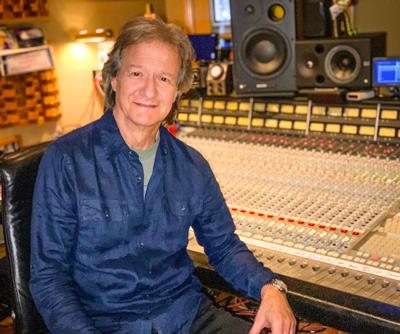Mixing and mastering engineers typically receive a royalty rate of 3-5% of the revenue generated from the sale of a music album. Mixing and mastering engineers play a crucial role in the production process of a music album, ensuring that the sound quality is top-notch.
However, many people are unsure about how much they should pay these professionals for their services. In general, mixing and mastering engineers receive a royalty rate of 3-5% of the revenue generated from the sale of a music album. This can vary depending on the agreement between the parties involved, and the popularity of the engineer.
In some cases, engineers may choose to charge a flat rate instead of a royalty percentage. Whatever the payment structure, it is important for artists and producers to ensure that they are compensating mixing and mastering engineers fairly for their valuable contributions to the music production process.

Credit: twitter.com
Typical Royalty Rates In The Industry
As a mixing and mastering engineer, it is essential to know the typical royalty rates in the industry that you can charge for your services. The royalty rates vary depending on experience, location, and reputation, but they generally range from 1% to 5% of the record label’s revenue or artist royalties. Let’s dive into each category of engineers and their corresponding royalty rates.
Mixing Engineer Royalty Rates:
Mixing engineers typically charge between 2% and 4% of the label or artist royalty for their projects. The fee usually varies, depending on the experience, expertise, and reputation of the mixing engineer. Most mixing engineers will negotiate their salary with the artist or record label, based on the number of songs, tracks, and the complexity of the project. The royalty is usually collected whenever the song or album sells or streams.
Mastering Engineer Royalty Rates:
Mastering engineers, like mixing engineers, also receive royalty rates between 2% and 4%. Mastering is the finishing touch that ensures that a song or album sounds cohesive and perfect. Mastering engineers charge based on the number of songs, tracks, and project complexity and will negotiate their salary based on this criteria with the artist or record label based on experience and reputation in the industry. Mastering engineers get paid whenever the album or song is sold or streamed.
In conclusion, before you negotiate your royalty rate as a mixing or mastering engineer, ensure that you have the required expertise, experience, and reputation to demand top pay. Like in any other industry, the more skilled, reliable and trustworthy, you are, the more likely you are to earn top dollar. To get paid what you’re worth, staying updated with technology, building a great client base, and having a professional and positive attitude are key.

Credit: majormixing.com
How Do Engineers Get Paid?
As a mixing and mastering engineer, it’s important to know how you will be paid for your work. The most common modes of payment include flat-rate payment, royalties, credits, points, and negotiating payment. Understanding the different payment structures allows engineers to make an informed decision and negotiate their fees accordingly.
Flat-rate Payment
Flat rate payment is the most common mode of payment for mixing and mastering engineers. This payment structure involves charging clients a fixed rate for your services. The price can be determined by the number of songs, the length of the track, or the complexity of the mix or master.
Royalties
Royalties refer to a percentage of the revenue generated from the sale or streaming of a song. Engineers who agree to receive royalties typically receive a smaller payment upfront, but have the potential to earn more in the long run if the song is successful. Royalty payments are usually paid out quarterly by the record company or distributor.
Credits And Points
Credits and points are commonly offered to mixing and mastering engineers who contribute to the creation of an album. Points are a percentage of the total profits from the album while credits refer to being listed as an engineer on the album. Points and credits are usually given in addition to a flat-rate payment or royalties. Credits and points allow engineers to have a stake in the success of the album.
Negotiating Payment
It’s important for engineers to not be afraid to negotiate their payment. Negotiating can be especially important if the engineer is experienced and has a proven track record of success. The negotiation process allows engineers to determine their worth and set realistic expectations for their payment. Before agreeing to a payment structure, it’s important to consider the expenses and time commitment involved in the project.
Frequently Asked Questions On What Royalty Rate Do Mixing And Mastering Engineers Get
How Do Mixing And Mastering Engineers Get Paid?
Mixing and mastering engineers are typically paid per project or by the hour for their services. Their rates can vary depending on their experience, reputation, and the complexity of the project. Payment is usually made through invoicing or online payment platforms.
What Is The Average Rate For A Mixing Engineer?
The average rate for a mixing engineer varies depending on the experience, location, and demand. The average cost ranges from $100 to $300 per hour, with some offering a flat rate for specific projects. It’s best to compare rates and portfolios before choosing a mixing engineer.
How Much Do Mixing And Mastering Engineers Charge?
Mixing and mastering engineers charge anywhere from $50 to $500 per hour, and their rates depend on various factors such as the engineer’s experience, the complexity of the project, and the equipment used. Some engineers also offer package deals for entire albums or multiple songs.
Do Mastering Engineers Own Masters?
No, mastering engineers do not own masters. A mastering engineer is responsible for optimizing the audio quality of a recording and preparing it for final release, but the owner of the masters is usually the recording artist or the record label.
Conclusion
The royalty rate for mixing and mastering engineers can vary greatly depending on the project, experience, and reputation of the engineer. Factors such as the type of rights being licensed and the scope of the project can also impact the payment.
It’s important for both engineers and artists to have a clear and transparent agreement in place to avoid any confusion or misunderstandings. As the music industry continues to evolve, it’s important for all parties to stay informed and updated on industry standards for fair payment and compensation.